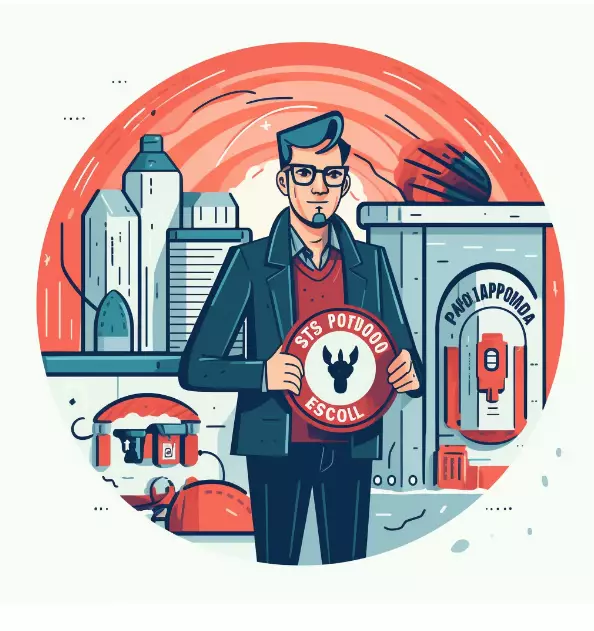- Home
- Protecting Yourself From Collection Agency Scams and Abuse
Protecting Yourself From Collection Agency Scams and Abuse

Dealing with debt collectors can be stressful, but unfortunately many consumers also have to contend with illegal scams and harassment from unethical collectors. Scam operations and abuse tactics can make a bad financial situation even worse.
However, you have rights and protections when it comes to debt collection. By understanding common scams, your rights, and smart debt management strategies, you can avoid collector abuse and protect yourself from shady operations. This guide will provide tips on spotting collector scams, handling harassment, enforcing your rights, and managing debt properly to avoid dealing with collectors in the first place.
Common Collection Agency Scams and Abuse Tactics
While most collectors follow the law, plenty still cross the line. Here are some of the most common scams and underhanded tactics to watch out for:
Calls from Fake Collection Agencies
Scammers create completely fabricated collection agencies to harass and frighten consumers. They may call claiming you owe money to a company you’ve never interacted with or mention bogus case numbers. Fake agencies mainly aim to scare you into paying immediately before you have time to verify the debt.
Threats of Jail Time or Other Legal Action
Many scammers will threaten arrest, lawsuits, or other legal action. However, failure to repay debts is generally a civil, not criminal matter. Collectors may take you to court but cannot have you jailed for unpaid bills. Any threats of definite legal action are likely bogus.
Calls About Debts You Don’t Owe
One common scam tactic is to call about debts you never took on in the first place. Scammers get your personal info from data breaches or public records then call insisting you owe a bill to a company you never did business with.
Harassment and Intimidation
Overly aggressive collectors may harass you with constant calls, make threats, insult or shame you, discuss your debt with others, or reveal the collector is attempting to collect a debt. This intimidation is illegal but still commonly used to pressure debt repayment.
Failure to Verify Debts
Collectors must send validation of the debt if you request it. Any agency refusing to verify what you owe is likely a scam.
Trying to Collect Too Much Money
Dishonest collectors often inflate the balances of debts with excessive interest and fees. Only pay what you actually owe, not their falsely inflated bottom line number.
Revealing Debt Information to Third Parties
Collectors cannot discuss your financial information with anyone other than you and your spouse. Revealing debts to friends, family, employers, or coworkers is prohibited.
Violating Collection Laws and Restrictions
Scammers routinely break laws like calling outside allowed hours, failing to identify themselves, or contacting you after receiving written cease communication requests. Follow up on any suspected legal violations.
Protecting Yourself from Scams and Abuse
Here are some tips to protect yourself and handle collection scams or harassment:
Don’t Panic or Act Rashly
High pressure tactics are meant to frighten you into quick, unwise decisions. Stay calm and don’t agree to anything before verifying the situation.
Know Your Rights Under the FDCPA
Educate yourself on your rights under the Fair Debt Collection Practices Act (FDCPA). This includes protection from harassment, limits on communication, debt validation rights, and more. Consult the FDCPA so you can identify illegal behavior.
Request Debt Validation
Ask the collector to validate the debt and provide proof of what you owe in writing. This can expose fake debts and is required by law if requested.
Dispute Invalid or Inaccurate Debts
If the collector cannot verify a debt or the amount is wrong, formally dispute the inaccuracy in writing within 30 days and request it be removed from your credit report. Send this dispute via certified mail with a return receipt.
Report Abuse and File Complaints
If a collector is violating laws, report them to the FTC, Consumer Financial Protection Bureau (CFPB), state authorities, and BBB. File formal complaints to create a paper trail exposing abuse.
Limit Communication
Under the FDCPA, you can write collectors requesting no further contact except for legal notices. End all contact with disreputable agencies. Keep records of all calls and letters as evidence if needed.
Consult a Lawyer if Needed
If a collector is violating multiple laws or you are facing legal action over invalid debts, contact a lawyer. Attorneys can help expose scam tactics and ensure collection laws are enforced.
Managing Debts to Avoid Collection
The best protection from debt collectors is avoiding them in the first place by properly managing your finances and debts:
Act Quickly on New Debts
Settling debts before they ever reach collections looks far better for your credit. Work directly with original creditors if you get behind to establish affordable repayment plans.
Work Out Payment Plans
Payment plans allow you to pay back debts slowly over time while avoiding collection agencies. Stick to your payment schedule to prevent debts from being turned over.
Consider Debt Settlement or Bankruptcy
If debts are totally unaffordable, debt settlement or bankruptcy may be necessary for a fresh start. This wipes debts clean legally while avoiding interaction with collectors. However, these options damage your credit.
Conclusion
Debt collectors provide an important service in recovering unpaid bills. However, consumers must watch out for scams and illegal harassment tactics that make situations much worse. By knowing your rights, verifying debts, reporting abuses, limiting contact with disreputable agencies, and properly managing your bills, you can protect yourself and avoid falling victim to collector scams or intimidation. With a proactive approach, consumers can reduce stress and prevent unethical collection agencies from taking advantage of difficult financial circumstances.
Author Bio
Wimgo
Other post in Categeory
© 2022 Wimgo, Inc. | All rights reserved.